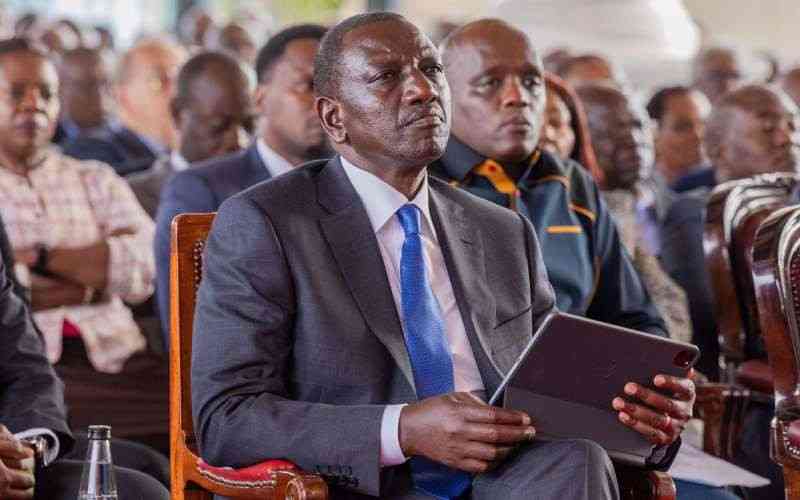Three weeks ago, a deal that increased funding to counties by about Sh32 billion was reached between the national government, county governments, the Inter-governmental Budget and Economic Council, the Commission for Revenue Allocation (CRA) and Treasury. No one can contest that increased funding to counties is a strong indication that the Government is, not only ready to listen, but also keen act on demands by county governments for increased funding.
Article One of the Constitution puts the sovereign power of the nation where it belongs — the people. This sovereign power can be exercised directly or indirectly through elected officials.
In a democracy such as ours, the principle of accountability holds that government officials—whether elected or appointed by those who have been elected—are responsible to the citizenry for their decisions and actions. On the other hand, transparency requires that the decisions and actions of those in government are open to public scrutiny and that the public has a right to access such information. Both concepts are central to the very idea of democratic governance.
In absence of the two, democracy is put on trial; elections and the notion of the will of the people have no meaning, and government has the potential to become arbitrary and self-serving.
I have noted with concern the back and forth discussions about the issue of accountability with governors maintaining that they will still push for more funding in their proposed Pesa Mashinani referendum.
This comes at a time when at least 12 counties have been reported to be in some sort of tussle pitting governors on one side and Members of County Assembly (MCAs) or senators on the other.
The most recent case study is Narok County where differences between the governor and the senator sparked violence and a series of demonstrations. Such scenarios hurt the economy not only at the county level but also at national level.
Other counties reeling from such unnecessary wrangles include Makueni, Nairobi, Siaya, Bomet, Kisumu and Bungoma, Kiambu and Kitui.
Nairobi County, for example, has faced serious financial constraints after MCAs refused to pass the 2014 Finance Bill due to their differences with Governor Evans Kidero who is now facing possible impeachment.
Back to my earlier discussion on transparency and accountability. Counties have every right to demand for more funds but my concern is the end result. For instance, what do they seek to achieve if reports have demonstrated that some counties fail to spend much of their funds on development projects? Will it be same script of different cast when funds are increased? What about security of counties and the nation as a whole? Does it play any role in all this?
My point is, we are witnessing worrying trends in county expenditure. How can one explain 10 counties out of the 47 spending only 30 per cent of their budgets on development? Surely, the people of Kenya who wield the supreme authority in the form of sovereign power deserve better.
We have on several occasions witnessed county governments spend taxpayers’ money on foreign trips, or on sitting allowances for various meetings among other irregular earnings. Counties must account for every penny they spend. The success of devolution greatly depends on how resources at the grassroots are put to use.
Kenyans and other oversight institutions, including the Senate, must play their role in ensuring that no funds are lost through unnecessary spending. Citizens must speak about issues that affect them. This enhances the government’s effectiveness and improves the quality of its decisions.
Devolution was designed to build more inclusive, transparent and accountable government systems. It also has the potential to improve the quality of life of all Kenyans.
Accountability is not negotiable. No one can stop the Senate or other public oversight institutions from holding public officers accountable.
Stay informed. Subscribe to our newsletter
 The Standard Group Plc is a
multi-media organization with investments in media platforms spanning newspaper
print operations, television, radio broadcasting, digital and online services. The
Standard Group is recognized as a leading multi-media house in Kenya with a key
influence in matters of national and international interest.
The Standard Group Plc is a
multi-media organization with investments in media platforms spanning newspaper
print operations, television, radio broadcasting, digital and online services. The
Standard Group is recognized as a leading multi-media house in Kenya with a key
influence in matters of national and international interest.
 The Standard Group Plc is a
multi-media organization with investments in media platforms spanning newspaper
print operations, television, radio broadcasting, digital and online services. The
Standard Group is recognized as a leading multi-media house in Kenya with a key
influence in matters of national and international interest.
The Standard Group Plc is a
multi-media organization with investments in media platforms spanning newspaper
print operations, television, radio broadcasting, digital and online services. The
Standard Group is recognized as a leading multi-media house in Kenya with a key
influence in matters of national and international interest.







